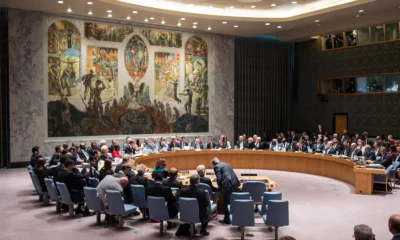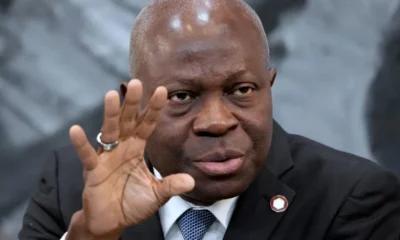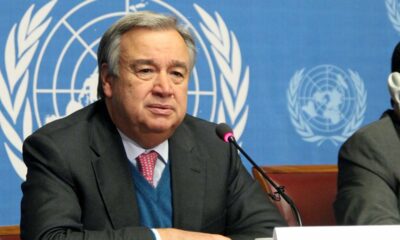Everyone in this world is entitled to 15 minutes of fame– is a legendary quote mis-attributed to the American pop icon Andy Warhol.
Over the years, the United Nations has laid down its own 15-minute rule for world leaders addressing the UN General Assembly. This year is no exception, as the UN readies to host over 150+ world leaders at the high-level segment of the 78th session of the General Assembly, beginning September 19.
In a message to Ambassadors and heads of missions in New York, Movses Abelian, Under-Secretary-General for General Assembly and Conference Management says: “I would like to take this opportunity to emphasize that, in accordance with existing practice at the general debate, a voluntary 15-minute time limit should be observed and the list of speakers has been prepared on the basis of a 15-minute statement by each delegation.”
But as tradition and protocol demand, it is member states, including political leaders and ambassadors, who reign supreme at the United Nations, not the Secretary-General or senior UN officials.
And no president of the General Assembly, the UN’s highest policy-making body, has the right to interrupt or curtail the prerogative of a president or prime minister to speak uninterruptedly—at his or her own pace.
In a bygone era, the UN installed a light on the speaker’s rostrum that kept flashing when a head of state or head of government went beyond the 15-minute limit.
President Ranesinghe Premadasa of Sri Lanka, who was apparently alerted about this, pulled out his handkerchief, covered the flashing light and continued to speak.
The following year, Cuba’s Fidel Castro, known for his long-winded speeches, pulled off the same stunt with a dramatic flair waving the handkerchief –as delegates cheered him and greeted his gesture with loud laughter.
The two political leaders had momentarily outsmarted the UN bureaucracy.
The all-time records for speech-making at the General Assembly have continued to be held by Castro, Nikita Khrushchev of the Soviet Union, Sékou Touré of Guinea, Muammar al-Qadhafi of Libya and President Soerkano of Indonesia.
The longest speech was made by Castro at the 872nd plenary meeting of the General Assembly on September 26, 1960. The time listed was an all-time-high of 269 minutes, according to the archives in the UN’s Dag Hammarskjold Library.
Other long speeches at the General Assembly included:
• Sékou Touré, President of Guinea, 144 minutes on October 10, 1960;
• Nikita Khrushchev – USSR – Chairman of the Council of Ministers, 140 minutes on September 23, 1960;
• Dr Soekarno, President of Indonesia, 121 minutes on September 30, 1960; and
• Colonel Muammar al-Qadhafi of the Libyan Arab Jamahiriya, 96 minutes on September 23, 2009.
The flamboyant Qadhafi, made a rare historic visit to the UN in September 2009, accompanied by political fanfare—and his usual team of female bodyguards.
In its report, the London Guardian said he “grabbed his 15 minutes of fame at the UN building in New York and ran with it. He ran with it so hard he stretched it to an hour and 40 minutes, six times longer than his allotted slot, to the dismay of UN organisers”.
“Qadhafi fully lived up to his reputation for eccentricity, bloody-mindedness and extreme verbiage”, said the Guardian, “as he tore up a copy of the UN charter in front of startled delegates, accused the Security Council of being an al-Qaida-like terrorist body, called for (US President) George Bush and (UK Prime Minister) Tony Blair to be put on trial for the Iraq war, demanded $7.7 trillion in compensation for the ravages of colonialism on Africa, and wondered whether swine flu was a biological weapon created in a military laboratory.”
Still, according to the Guinness Book of World Records, the longest statement ever made at the UN was delivered by Krishna Menon of India. His statement to the Security Council was during three meetings in January 1957, lasting more than eight hours.
According to AsiaNet, Menon, “one of the best statesmen India has ever produced”, made that marathon speech, blasting Pakistan over the disputed territory of Kashmir.
The transcript of the speech ran to 160 pages.
During the speech, Menon collapsed midway and had to be revived. But he returned to the Council chamber and continued to attack Pakistan for another hour.
But in recent years, there were no such dramatic moments either in the Security Council or the General Assembly.
At most international conferences, the host country has the privilege of being the first speaker on day one.
However, a longstanding tradition gives pride of place to Brazil followed by the US as the second speaker for the opening day, this time it would be President Joe Biden.
During an official visit to Brasilia, I asked one of the senior Brazilian officials about the origins of the tradition. And he told me “Even we don’t why we continue to be the number one speaker”.
In those days, most countries were reluctant to be the first to address the chamber, according to a published report. Brazil, at the time, was the only country that volunteered to speak first. Some say that the tradition dates back to 1947, when Brazil’s top diplomat Oswaldo Aranha presided over the Assembly’s First Special Session.


 Sports1 day ago
Sports1 day ago
 Metro2 days ago
Metro2 days ago
 Metro15 hours ago
Metro15 hours ago
 Tech2 days ago
Tech2 days ago





























